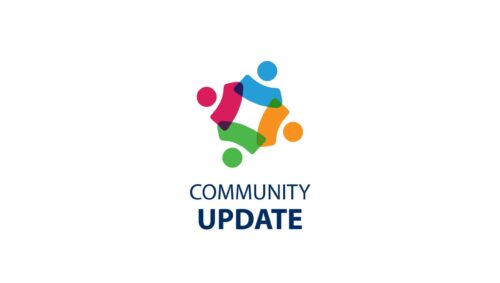Top 10 for Health
Make these 10 doctor-recommended resolutions in the New Year.

The New Year is the perfect time to hit the reset button on your health and wellness. Doctors say you can make the biggest impact with small, incremental tweaks to your routine. Here are the top 10 resolutions the AMA recommends:
1. Get moving. Exercise is essential for your physical and mental health. The American Heart Association recommends that adults get at least 150 minutes a week of moderate-intensity activity, or 75 minutes a week of vigorous-intensity activity. Start off by going for a family walk, taking the stairs at work or parking a little farther away from the mall entrance when you’re making those post-holiday gift returns.
2. Tweak your diet to include more water and less sugar-sweetened beverages. Replace processed foods—especially those with added sodium and sugar—with nutritious, whole foods. Stock your fridge and pantry with fruits, vegetables, whole grains, nuts and seeds, low-fat dairy products, and lean meats and poultry.
3. Get up to date on your vaccines to protect yourself and your family. These include the annual flu shot and the updated COVID-19 vaccine for everyone six months and older. Vaccines are also available to protect older adults from severe RSV. New tools to protect infants during RSV season include maternal vaccination and monoclonal antibody immunization. If you have questions, speak with your physician and review trusted resources, including getvaccineanswers.org.
4. Get screened. Estimates based on statistical models show that since April 2020, millions of screenings for breast, colorectal and prostate cancer may have been missed due to pandemic-related care disruptions. Check in with your physician. If you’re due for preventive care, tests or screenings, make an appointment.
5. High blood pressure, often referred to as hypertension, can increase your risk of heart attack or stroke, and it affects millions of Americans. Visit ManageYourBP.org to understand what your blood pressure numbers mean and what you can do to get your blood pressure under control.
6. One in three American adults has prediabetes, a condition that can lead to type 2 diabetes if left unmanaged. Healthy eating and exercise can help delay or even prevent type 2 diabetes. Learn your risk by taking a simple two-minute self-screening test at DoIHavePrediabetes.org. This resource also features helpful lifestyle tips that can help you reverse prediabetes.
7. If consuming alcohol, drink only in moderation. The U.S. Dietary Guidelines for Americans defines that as up to one drink per day for women, two per day for men (only by adults of legal drinking age).
8. Declare your home and car smokefree to eliminate secondhand smoke exposure. Your health care provider can offer resources and guidance for quitting tobacco and nicotine.
9. Follow a doctor’s instructions when taking prescription drugs—especially opioids. Always store and dispose of medications safely to prevent misuse. When prescribed antibiotics, take them as directed. Not taking the full course can lead to antibiotic resistance, a serious public health problem.
10. Good mental health is part of good overall health. Manage your stress, get sufficient sleep, exercise, and seek help from a mental health professional when you need it.











